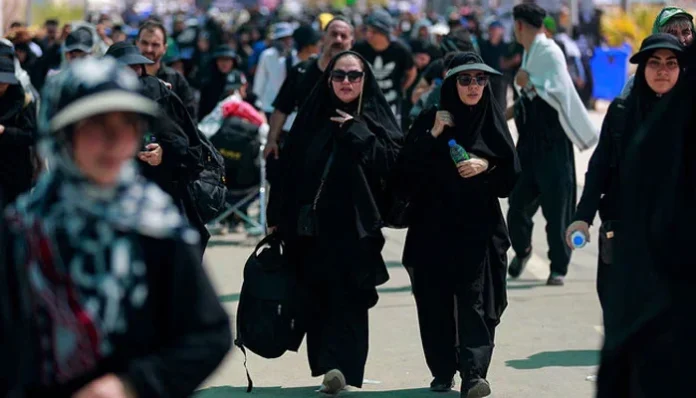ISLAMABAD – In a significant decision affecting thousands of pilgrims, the Pakistani government has prohibited road travel to Iran and Iraq for the upcoming Arbaeen pilgrimage, citing security threats and public safety concerns.
Interior Minister Mohsin Naqvi announced the policy shift via social media platform X, clarifying that only air travel will be allowed for the spiritual journey this year. The decision follows detailed consultations with the Foreign Ministry, Balochistan government, and security agencies.
“It has been decided that Zaireen will not be allowed to travel by road to Iraq and Iran for Arbaeen this year,” Naqvi stated. “This difficult decision was taken in the interest of national security and public safety.”
In response, Prime Minister Shehbaz Sharif has directed authorities to maximize flight availability for pilgrims. Special flights are expected to be arranged soon to accommodate the large number of Pakistanis who participate in Arbaeen each year.
The Interior Minister also met with the Prime Minister to discuss the law and order situation in Balochistan and brief him on the new travel policy. PM Sharif further directed the launch of the Gwadar Safe City project, highlighting the government’s ongoing focus on internal security.
However, the decision has sparked public backlash. On Saturday, protesters gathered on Alamdar Road in Quetta, calling the move unjust and discriminatory, especially toward lower- and middle-income pilgrims who cannot afford air travel.
Demonstrators pointed out that thousands had already secured visas, and with limited flight options and high airfare, the road ban effectively bars many from undertaking the pilgrimage. They urged the government to reverse the decision, ensure road safety, and allow ground travel.
The Arbaeen pilgrimage, marking the 40th day after the martyrdom of Imam Hussain (AS), sees millions gather in Iraq annually. Pakistani pilgrims traditionally cross into Iran via Balochistan before reaching Iraq, a route now closed under the new policy.




